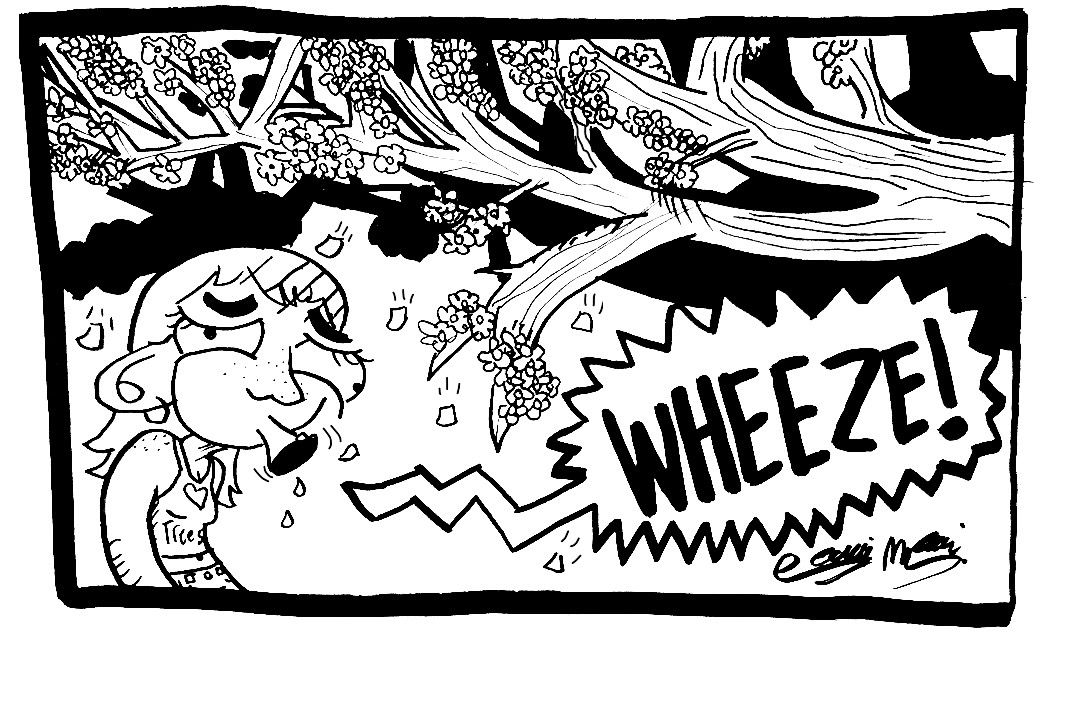When you picture an American, an Asian-American or Pacific Islander likely isn’t the first thing that comes to mind. Yet, there were approximately 17 million people in the U.S. who identified as Asian-American or Pacific Islander in 2010, according to the U.S. Census Bureau. That’s about 5.6 percent of the U.S. population that can use their voices to speak up against the injustices we see every day. But it’s hard for me to come up with instances where Asian-Americans like me have actively used our voice to condemn the events that happened in Baltimore, Ferguson and most recently, at a violent rally in Charlottesville.
U.S. senators, civil rights organizations and even a tiki torch company all condemned the white supremacist rally in Charlottesville. Yet a population that I found to be mostly quiet about the events in Virginia was my own: Asian-Americans and Pacific Islanders. If we do not break this silence soon, I’m afraid we never will.
In the U.S., racial discrimination is something that all minorities are familiar with, and have been accustomed to since a young age. Asian-Americans and Pacific Islanders have experienced their own share of discrimination, and that’s why we should speak up for others.
When Asians first started immigrating to America and the U.S. started keeping records, white Americans reacted negatively. Although the Chinese moved to the U.S. to work, they had to do so within the bounds of the Chinese Exclusion Act, which limited immigration from China and lasted from 1882 to 1943. Then the internment of thousands of American-born and Japanese-born people followed the bombing of Pearl Harbor in 1941. Anti-miscegenation laws, which made interracial marriage illegal, applied to Filipinos and other Asian and Pacific Islanders until the 1900’s. The community of Asian-Americans and Pacific Islanders has endured and protested against these instances of racism.
As a community we’re not reacting to these instances of racism the way we should.
But after these events, even before sociologist William Petersen coined the term “model minority” in 1966, our community has become pressured to be quiet. The term “model minority” is often misinterpreted as a positive title for the Asian community, which is often regarded as being socio-economically successful. But in actuality, we were dubbed the model minority because “the image of the hard-working Asian became an extremely convenient way to deny the demands of African-Americans [and other minorities],” Jeff Guo from the Washington Post said. It’s time to break down our model minority image.
The experiences that Asian-Americans and Pacific Islanders currently go through are noticeably different from those of other racial minorities. Although we endure our share of racial slurs, Asians currently experience significantly less racially motivated violence nationally, in comparison to the black and Latino communities.
Something my community has discussed is our complacency with anti-black ideology, a conversation which started gaining steam after Akai Gurley, a black man, died at the hands of Asian-American NYPD officer Peter Liang in 2014, which also sparked the #Asians4BlackLives” movement later that year. These feelings may come from the fact that when many Asian Americans immigrated to the U.S., the ideas they learned from a mostly white society misguided them to believe that other minority communities, especially black communities, were not trying their hardest to become successful. It takes constant vigilance to unlearn these ideas and inherent biases that pit us against each other. This vigilance includes calling out members of our community who still perpetuate these hateful thoughts and ideas, including those who march or sympathize with white supremacists.
Although it’s important to acknowledge that no community can be written off as having the same exact opinions or values, as a community we’re not reacting to these instances of racism the way we should.
I’m surrounded by young Asian-American and Pacific Islander family members and friends, both at GW and around the world, who are active in their community and vocal about the issues that affect them personally and even those that don’t, but we cannot do this alone. I pride myself on being a part of Asian student organizations like the Philippine Cultural Society, where members can work toward helping and informing the communities around us. But we need to push harder on current issues that do not affect our community directly. This means going to support student, local and national organizations that help communities that are affected by events like Charlottesville. This means bringing these issues up with our ally friends who “don’t want to talk about politics right now.” And yes, it means bringing up these issues with our parents and family members, who, most often without malice, perpetuate ideologies like anti-blackness or homophobia that hurt all of us in the end.
These are difficult conversations to have, and I can admit that based on first-hand experience. But this is what our community needs to do. Being a “model minority” isn’t a compliment. It’s a title associated with complacency and ignorance. Although I believe Martin Niemoller’s poem is overused, I believe it’s accurate in our current political climate: “Then they came for me – and there was no one left to speak for me.”
Renee Pineda, a junior majoring in political science, is a Hatchet opinions writer.
Want to respond to this piece? Submit a letter to the editor.


